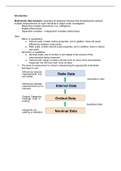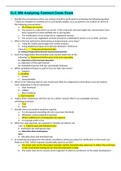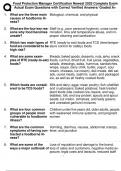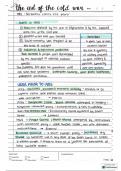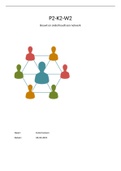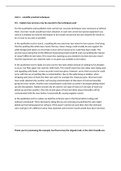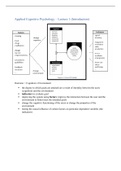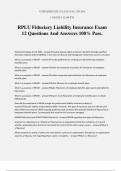Lecture 2: Substantive Law (1)
Kerr (2015), Norms of Computer Trespass
Abstract:
This essay develops an approach to interpreting computer trespass laws that ban
unauthorized access to a computer. This essay argues that authorization to access a
computer is contingent on trespass norms - shared understandings of what kind of access
invades another person’s private space.. The remainder of the essay articulates an
appropriate set of rules using the principle of authentication. Access is unauthorized when
the computer owner requires authentication to access the computer and the access is not by
the authenticated user or his agent. This principle can resolve the meaning of authorization
before computer trespass norms settle and can influence the norms that eventually emerge.
Trespass within physical space
Providing informal rules based on the nature of each space
Different spaces trigger different obligations.
Home: the slightest overstep or intrusion has been held to be a
trespass.
Commercial store: signal openness absent special circumstances
indicating closure.
Identify means of permitted access.
Permission to enter often is implicitly limited to specific methods of entrance.
Context of access
E.g, the front door is to be used for entry, but only a set few have the key to
the lock.
The norms of computer trespass
CFAA - state equivalents ban unauthorized access to a computer
Three lessons for interpreting authorization in computer trespass statutes that
follow from the norms-based nature of trespass law
The inevitability of norms in computer trespass law.
Identification rests on proper trespass norms
Because computer trespass norms are unsettled, courts should identify the
best norms to apply.
A normative policy decision about what understandings should govern
the internet has to be made, so that judicial decisions can shape
future computer trespass norms.
Trespass law provides the appropriate framework to resolve computer
misuse, and courts can meet the challenge.
It provides one because it implies an essential balance.
Protecting online privacy requires recognizing boundaries that
individuals can’t cross.
Preserving the public value of the internet requires identifying
uses that individuals can enjoy without fear of prosecution.
Norms of the world wide web
The inherent openness of the web
Identify the nature of the space that the web creates.
Process of browsing is open to all.
Fundamental part of the web’s technological design.
Authorized access on the web
Website operators often place limits and restrictions on access to information.
Court: distinguishing between actual access barriers and merely ways
to delay discovery, to figure out whether trespass liability can be
triggered.
Kerr (2015), Norms of Computer Trespass
Abstract:
This essay develops an approach to interpreting computer trespass laws that ban
unauthorized access to a computer. This essay argues that authorization to access a
computer is contingent on trespass norms - shared understandings of what kind of access
invades another person’s private space.. The remainder of the essay articulates an
appropriate set of rules using the principle of authentication. Access is unauthorized when
the computer owner requires authentication to access the computer and the access is not by
the authenticated user or his agent. This principle can resolve the meaning of authorization
before computer trespass norms settle and can influence the norms that eventually emerge.
Trespass within physical space
Providing informal rules based on the nature of each space
Different spaces trigger different obligations.
Home: the slightest overstep or intrusion has been held to be a
trespass.
Commercial store: signal openness absent special circumstances
indicating closure.
Identify means of permitted access.
Permission to enter often is implicitly limited to specific methods of entrance.
Context of access
E.g, the front door is to be used for entry, but only a set few have the key to
the lock.
The norms of computer trespass
CFAA - state equivalents ban unauthorized access to a computer
Three lessons for interpreting authorization in computer trespass statutes that
follow from the norms-based nature of trespass law
The inevitability of norms in computer trespass law.
Identification rests on proper trespass norms
Because computer trespass norms are unsettled, courts should identify the
best norms to apply.
A normative policy decision about what understandings should govern
the internet has to be made, so that judicial decisions can shape
future computer trespass norms.
Trespass law provides the appropriate framework to resolve computer
misuse, and courts can meet the challenge.
It provides one because it implies an essential balance.
Protecting online privacy requires recognizing boundaries that
individuals can’t cross.
Preserving the public value of the internet requires identifying
uses that individuals can enjoy without fear of prosecution.
Norms of the world wide web
The inherent openness of the web
Identify the nature of the space that the web creates.
Process of browsing is open to all.
Fundamental part of the web’s technological design.
Authorized access on the web
Website operators often place limits and restrictions on access to information.
Court: distinguishing between actual access barriers and merely ways
to delay discovery, to figure out whether trespass liability can be
triggered.

